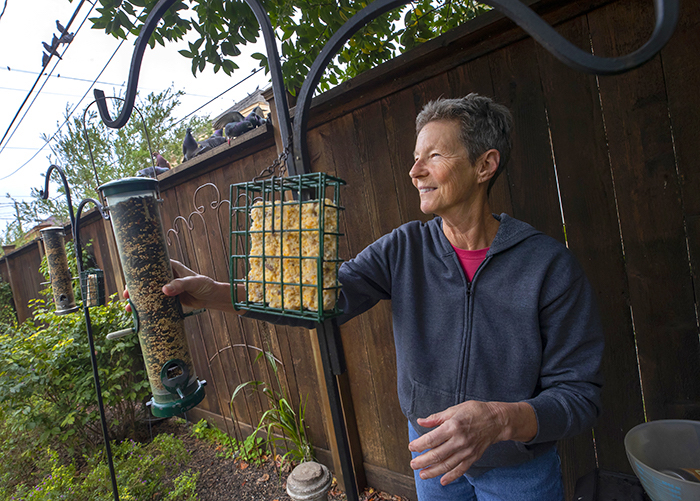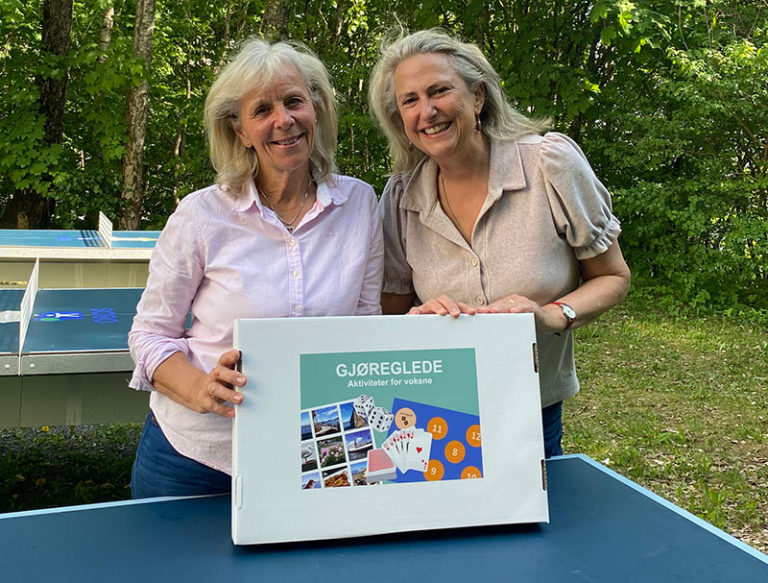Ways to Engage Someone with Dementia in the Outdoors
Current research shows that outdoor activity promotes brain plasticity by stimulating new connections between cells in the parts of our brain responsible for speech, processing, interpreting sensory stimulation, coordination, problem solving, emotional reasoning and complex thought.
When we are outside, we are exposed to 33–66 times the amount of natural light that we receive indoors. Being in the fresh air also increases the amount of oxygen we take in. Both light and oxygen are essential to brain function and help regulate our circadian rhythms, which affect our sleep, alertness, and appetite.
Research also shows that connection to nature and being outdoors gives our mood and mental health a boost. This is because of the release of ‘happy hormones’ and neurotransmitters, such as serotonin, dopamine, oxytocin, and endorphins. These neurotransmitters are associated with feelings of pleasure, love and happiness, and they also reduce depression and anxiety and assist with learning, memory, motor system function, and essential processes like heart rate and digestion.
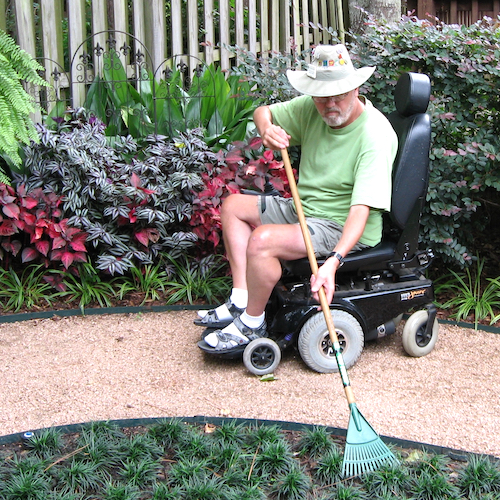
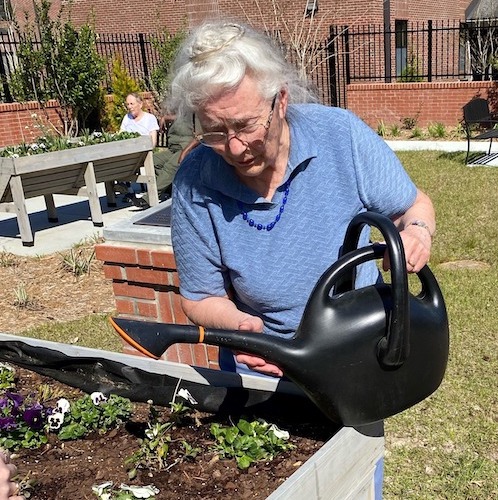
Clearly it’s essential for both our physical and mental health to spend time outdoors! This is especially true for people living with dementia. Here are some simple ways we can invite our friends living with dementia to enjoy the outdoors:
Sit in the sunshine – just 10 minutes in the sun can boost vitamin D production
Take a sensory walk – notice the colors, scents, and textures that you observe while strolling. Scents can bring on strong memories because of the brain regions that process them. A sensory walk will often spark reminiscence and conversation.
Gardening – raised garden beds and long handled gardening tools can make gardening accessible to older adults, even those in wheelchairs. Planting seedlings, watering, weeding, deadheading, snipping herbs, cutting flowers – these are all rich sensory experiences that allow people to make meaningful contributions to the home or care environment.
Bird watching – position a comfortable chair outside near a bird feeder or bird bath and observe! Can you identify any of the birds by their call or song? Add binoculars or a large-print bird identification book to enhance the experience. Some elders may enjoy refilling the bird feeder as a daily role.
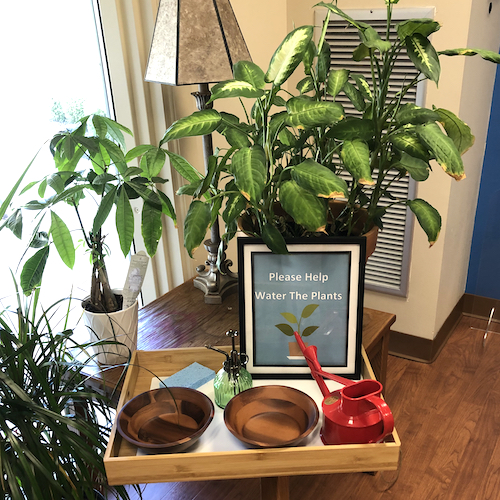
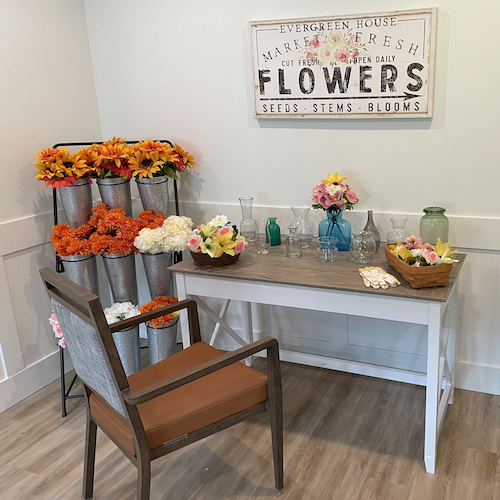
Can’t get outside? Bring the outdoors in! Make sure to have potted plants available inside for watering. Invite someone living with dementia to help arrange flowers for the table or wash vegetables for a salad. Post a bird feeder outside a window with comfortable seating. Invite someone to smell fresh herbs just picked from the garden. In these small ways, we can feel connected to nature even on days when we can’t get out in it.
Source: https://dementiaadventure.org/resources/the-benefits-of-nature/

